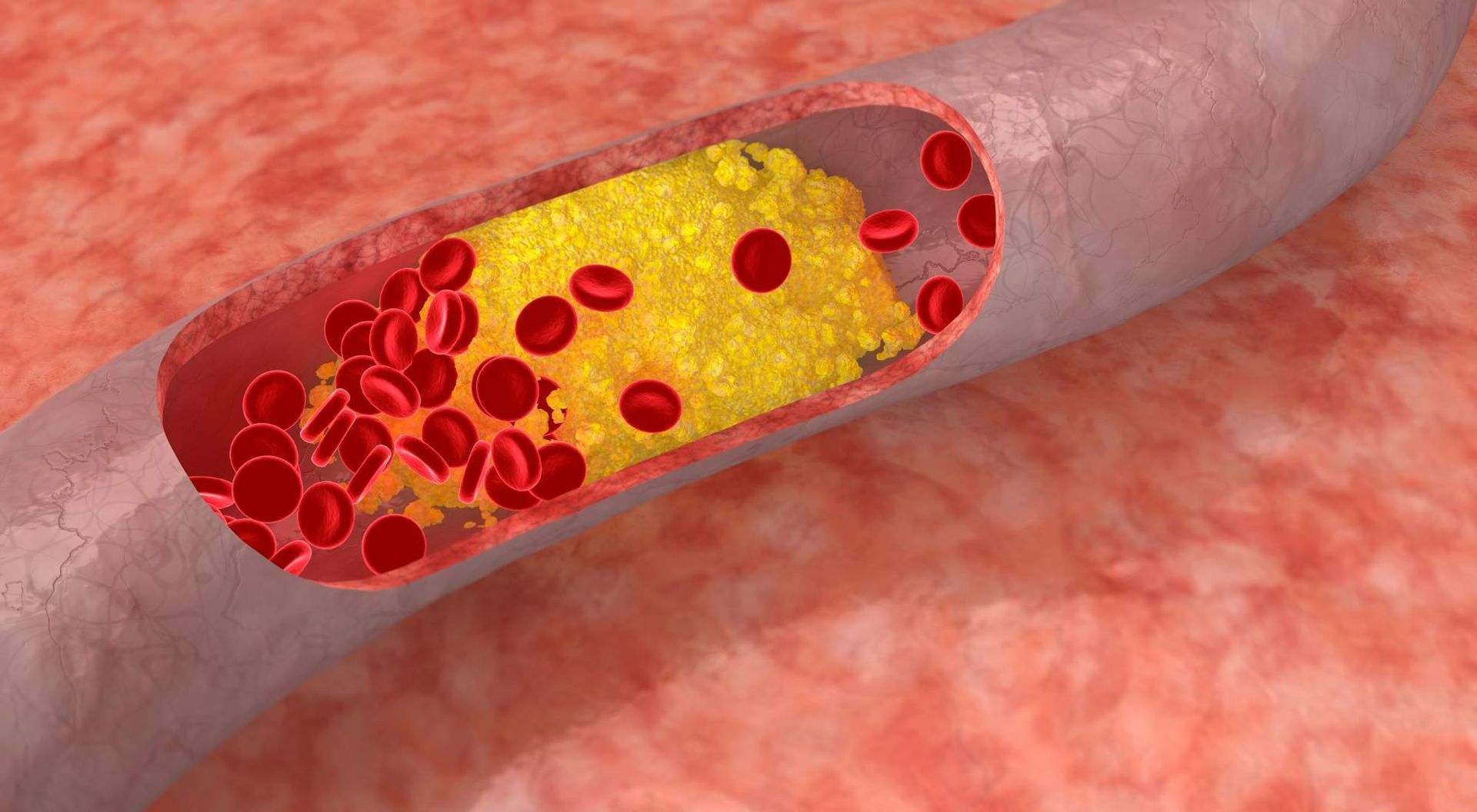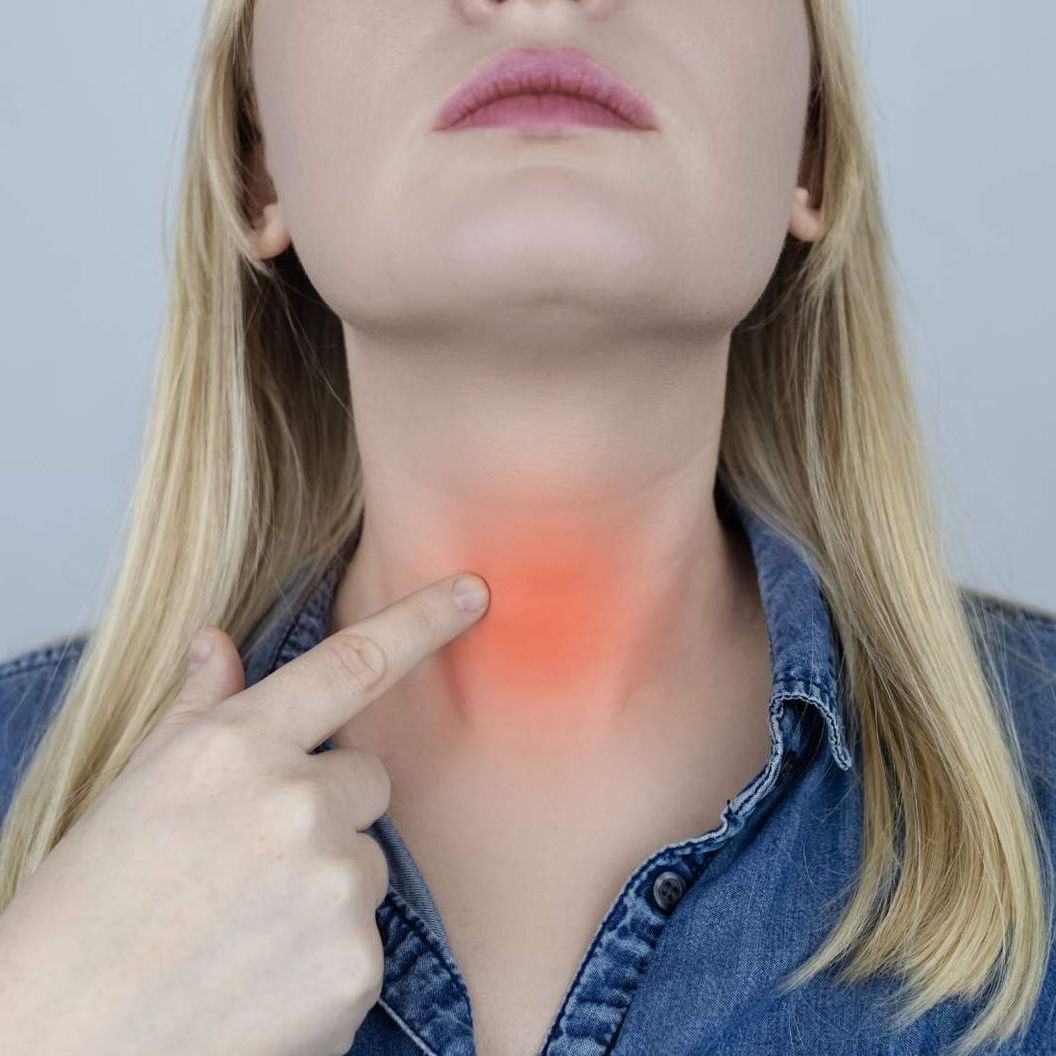Can Hashimoto’s Disease Cause High Cholesterol?
"The content below is not intended to be a substitute for professional medical advice, diagnosis, or treatment. Always seek the advice of your physician or other qualified health provider with any questions you may have regarding a medical condition."
You get your bloodwork done ahead of your annual physical, and now your doctor is concerned about your cholesterol levels.
Dealing with cholesterol just seems like one more thing to add to your Hashimoto’s diagnosis.
But what does high cholesterol have to do with Hashimoto’s disease? Is there a connection between Hashimoto’s and high cholesterol levels?
By understanding the connection between high cholesterol and Hashimoto’s disease and implementing effective management strategies, you can take proactive steps toward better health and well-being.
In this article, we explore the relationship between high cholesterol and Hashimoto’s disease. We’ll delve into how Hashimoto’s impacts cholesterol, the dangers of high cholesterol, and actionable strategies to manage and improve cholesterol levels.
Table of Contents
Is There a Link Between Hashimoto’s Disease and High Cholesterol?
Yes.
Hashimoto’s disease is characterized by an under-active thyroid gland which directly influences cholesterol levels in several ways.
When your thyroid is underactive, it fails to produce adequate thyroid hormones, leading to a slow metabolism. These thyroid hormones play a crucial role in regulating how your body utilizes cholesterol and other lipids (fats). They also facilitate the liver’s production of fatty acids, which are essential for storing energy to be used later.
When thyroid hormones are insufficient, these processes become disrupted, resulting in higher levels of cholesterol circulating in your bloodstream.
So what exactly is high cholesterol? Cholesterol is a waxy, fat-like substance found in your blood. While you need some cholesterol to build healthy cells, when your cholesterol is too high it can increase your risk of heart disease and stroke.
Maintaining optimal thyroid function ensures that your body can properly utilize and process cholesterol, reducing the risk of it accumulating to dangerous levels. By restoring thyroid hormone balance, you may be able to regulate cholesterol levels effectively and mitigate the risks associated with high cholesterol.
How Does Hashimoto’s Disease Cause Higher Cholesterol Levels?
Hashimoto’s disease can lead to disruptions in lipid metabolism, resulting in elevated cholesterol levels. The interplay between high cholesterol and Hashimoto’s involves multiple mechanisms contributing to the higher levels.
With hypothyroidism, your thyroid hormones, T4 and T3, are reduced and your thyroid-stimulating hormone, TSH, is elevated. This signals to your body’s cholesterol regulation system that something has gone haywire.
Normally, thyroid hormones keep cholesterol in check, but with hypothyroidism, this delicate balance is disrupted, leading to higher levels of cholesterol circulating in your bloodstream.
Decreased LDL Receptors
LDL cholesterol, often referred to as “bad” cholesterol, plays a vital role in transporting cholesterol throughout the body. The reason it gets a bad rap is that when there is an excess of LDL cholesterol, it can lead to the accumulation of plaque in the arteries — increasing the risk of heart disease and stroke.
When thyroid hormone levels are insufficient, the expression of LDL receptors may decrease, diminishing the removal of the bad cholesterol. This
disruption in LDL receptors can contribute to high cholesterol levels, elevating the risk of cardiovascular complications in individuals with Hashimoto’s disease.
Issues With How Components of Cholesterol Are Absorbed, Broken Down, and Inhibited
Thyroid hormones are essential for regulating enzymes involved in these processes. They promote the absorption of cholesterol in the intestine and reduce the breakdown of fatty acids, leading to higher levels of cholesterol and triglycerides in the blood.
Certain proteins also can block an enzyme that breaks down triglycerides, contributing further to elevated triglyceride levels.
Triglycerides, a type of fat found in blood, come from the food you eat and are also made in the body.
Elevated triglyceride levels are associated with an increased risk of heart disease.
Decreased Control of Proteins That Activate LDL Receptors
One of the thyroid hormones, T3, is closely associated with sterol regulatory element-binding proteins.
These proteins play a crucial role in regulating lipid (fat) metabolism in the body. When T3 levels are reduced, LDL receptors decrease, resulting in higher levels of LDL or bad cholesterol in the blood.
Decreased Bile Acid Synthesis
Thyroid hormones also may play a role in how bile acids are utilized by the liver. These acids:
- Deplete cholesterol stored in the liver
- Enhance the liver’s uptake of cholesterol from the bloodstream
- Are essential for the digestion and absorption of dietary fats, including cholesterol
However, when thyroid levels are insufficient, this process may be impacted. The liver cannot effectively utilize bile duct acids. As a result, cholesterol levels in the bloodstream may remain elevated.
What Are the Dangers of High Cholesterol Due to Hashimoto’s Disease?
Hashimoto’s disease can lead to various underlying health issues, including high cholesterol, which is associated with serious health risks such as:
- Heart disease
- Stroke
- Transient ischemic attack (TIA)
- Chronic kidney disease
- Blood clots
- Peripheral arterial disease
These
health risks show the importance of effectively managing cholesterol levels in individuals with Hashimoto’s disease to reduce the likelihood of developing potentially life-threatening conditions.
5 Ways To Manage High Cholesterol Caused by Hashimoto’s
Effectively managing high cholesterol caused by Hashimoto’s disease is crucial for overall health and well-being.
By controlling cholesterol levels, you can reduce the risk of cardiovascular complications and improve quality of life.
Strategies to manage high cholesterol may also support thyroid health and overall metabolic function.
Here are five ways to effectively manage high cholesterol:
#1: Regularly Take Prescribed Thyroid Medication
Levothyroxine is a commonly prescribed medication to control hypothyroidism, a common outcome of Hashimoto’s disease. It has been shown to decrease cholesterol levels. In some cases, cholesterol levels are in the normal range in patients with overt hypothyroidism after regularly taking thyroid medication.
However, it’s crucial to discuss medication options with your doctor. All patients diagnosed with high cholesterol should undergo screening of hormone levels before starting treatment.
It’s important to note that some individuals may not be suitable candidates for levothyroxine or may require alternative treatments. Therefore, personalized medical advice from a healthcare professional is essential.
#2: Consider Cholesterol-Lowering Statin Drugs
Statins are medications that can effectively lower cholesterol levels and have been linked to a reduced risk of heart disease and stroke. However, it’s important to be aware that statins may also come with severe side effects, including:
- Muscle pain
- Inflammation of muscles
- Liver damage
- Increased blood sugar
- Memory loss
It’s important to explore alternative methods for managing high cholesterol before considering statin therapy. However, if cholesterol levels cannot be adequately controlled through lifestyle changes and other interventions, statins may be considered as a possibility.
Ultimately, the decision to use statin drugs should be made in consultation with a healthcare professional, weighing the potential benefits and risks based on individual circumstances.
#3: Lose Weight
Weight gain is a common symptom of Hashimoto’s disease. Maintaining a healthy weight is essential for overall health, including managing high cholesterol. While losing weight can be challenging, it is crucial for improving cardiovascular health and reducing cholesterol levels.
In a study, researchers found that even modest weight loss of up to 10% of body weight produced significant improvements in cardiovascular risk factors.
While this study wasn’t specific to individuals with Hashimoto’s disease, there are certainly still benefits to weight loss.
#4: Exercise Regularly
Regular exercise plays a crucial role in managing cholesterol levels and promoting overall health and weight loss.
In addition to its benefits for cholesterol, exercise can also:
- Increase your energy levels
- Help with depression and anxiety
- Reduce joint pain
- Increase self-image
Exercise doesn’t need to be intense to be effective.
A study revealed that moderate-intensity activities, such as walking, yielded equivalent health benefits to high-intensity activities, such as running. While this study wasn’t specific to individuals with Hashimoto’s disease, it demonstrates that exercise intensity does not have to be extreme to yield significant health benefits.
Incorporating regular physical activity into your routine, such as brisk walking, swimming, or cycling, can help improve cholesterol levels, support weight loss efforts, and enhance overall well-being in individuals with Hashimoto’s disease.
#5: Make Dietary Changes
Your diet plays a crucial role in managing cholesterol levels and supporting overall health with Hashimoto’s, including weight management.
Consider adopting an anti-inflammatory diet. This typically involves reducing saturated fat intake and increasing consumption of fiber-rich foods, such as:
- Fruits
- Vegetables
- Whole grains
- Legumes
It’s important to avoid certain foods like soy products, walnuts, etc. before taking some hypothyroid medications, which can disrupt the absorption of the drug.
Additionally, seeking guidance from a holistic nutritionist, such as Dr. Sergi at HealthierU, can complement your hypothyroidism treatment plan.
Dr. Sergi provides tailored, comprehensive nutritional plans to support your Hashimoto’s and high cholesterol journey by controlling your cholesterol and thyroid health.
HealthierU’s Holistic Nutrition Plans May Help You Manage High Cholesterol and Hashimoto’s
Managing high cholesterol and Hashimoto’s is often frustrating and challenging.
Adopting a holistic approach to your health can make a significant difference in your well-being.
At HealthierU, Dr. Sergi understands the complexities of Hashimoto’s disease and the importance of addressing both physical and nutritional aspects of health.
Dr. Sergi takes a personalized approach to helping manage your symptoms and getting to know you and your body. With her guidance, you will receive a tailored plan to include nutritional guidance that aligns with your unique needs and supports your journey to better Hashimoto’s and high cholesterol management.






